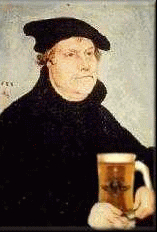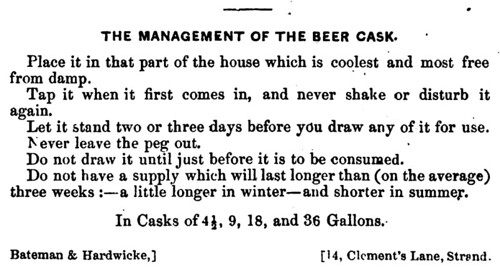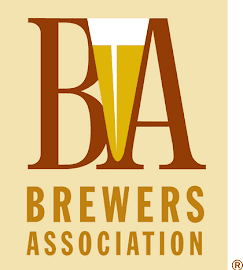
A bi-weekly, non-comprehensive roundup
of news of beer and other things.
Weeks 43/44
22 October - 4 November 2017
- 4 November 2017
This date marked the 100th anniversary of the Balfour Declaration, a sixty-seven-word proclamation from Britain’s then-foreign secretary expressing his government's support for a Jewish homeland in Palestine.
—Via Washington Post.The Balfour Declaration is held up as a seminal event, the first formal utterance of the modern Israeli state’s right to exist (though some historians quibble that a “national home” is not the same thing as a state). For that reason, it is also bitterly regarded by many Palestinians as the first instrument of their dispossession. In 1917, Jews made up less than 10 percent of Palestine’s population — a century later, they are now the majority, while millions of Palestinians live in exile or in refugee camps. - 3 November 2017
—Via Alan McLeod, at A Good Beer Blog.As craft dies its death, so too goes its side kick style. In its place we are seeing hundreds and thousands of local expressions, each defying any concept of canon. - 2 November 2017
The 'craft' brewing industry contributed $67.8 billion to the U.S. economy in 2016, and more than 456,000 jobs.- 2016 craft brewing industry contributions to the U.S. economy, broken down by state and per capita.
- —Via [U.S.] Brewers Association.
- Craft beer economic ranking of all 50 states plus District of Columbia
- —Via YFGF (from Brewers Association data).
- 2016 craft brewing industry contributions to the U.S. economy, broken down by state and per capita.
- 31 October 2017
The other Reformation: how Martin Luther, five hundred years ago, helped to change our beer.
—Via NPR Food.In the 16th century, the Catholic Church had a stranglehold on beer production, since it held the monopoly on gruit — the mixture of herbs and botanicals (sweet gale, mugwort, yarrow, ground ivy, heather, rosemary, juniper berries, ginger, cinnamon) used to flavor and preserve beer. Hops, however, were not taxed, considered undesirable weeds. [...] Even before the Reformation, German princes had been moving toward hops [...] But Luther's revolt gave the weed a significant boost. The fact that hops were tax-free constituted only part of the draw. Hops had other qualities that appealed to the new movement; chiefly, their excellent preservative qualities. [...] If the Catholic Church lost control over the printed word with the invention of the printing press — the technological weapon that ensured Luther's success — it lost control over beer with the rise of hops. - 30 October 2017
While the value of the U.S. hop crop in 2017 is two-and-one-half times that of the crop in 1977, public investment in hop effort has diminished by ninety percent. To partially "reverse this misalignment," the [U.S.] Brewers Association has announced an agreement with the U.S. Department of Agriculture Agricultural Research Service (USDA-ARS) to fund a public hop breeding program within the USDA system. The program will fund the hiring of one full-time USDA breeder and include a
—Via U.S. Brewers Association.hop sensory assessment program in 2018, utilizing new sensory methods that will include hundreds of brewers to probe brewer acceptance and to guide rational acreage increase decisions. This assessment program is essential to bridge a persistent gap between variety development and commercialization. - 30 October 2017
The monks of Mount St Bernard Abbey, in Leicestershire, U.K., plan to open a brewery on the monastary grounds. Pending accreditation by the International Trappist Association, the brewery will become the world's twelfth Trappist brewery (and the first in the U.K.).
—Via Leicester Mercury. - At present, the eleven existing Trappist breweries are:
- Brasserie de Rochefort / Rochefort (Belgium, 1595)
- Brouwerij der Trappisten van Westmalle / Westmalle (Belgium, 1836)
- Brouwerij Westvleteren / St Sixtus (Belgium, 1838)
- Abbaye Scourmont / Bières de Chimay (Belgium, 1863)
- Abbaye Notre-Dame d'Orval / Orval (Belgium, 1931)
- Brouwerij der Sint-Benedictusabdij de Achelse Kluis / Achel (Belgium, 1998)
- Brouwerij de Koningshoeven / La Trappe (Netherlands, 1884)
- Stift Engelszell (Austria, 2012)
- St. Joseph’s Abbey / Spencer (Massachusetts, USA, 2013)
- Brouwerij Abdij Maria Toevlucht / Zundert (Netherlands, 2013)
- Abbey of Saints Vincent and Anastasius / Tre Fontane (Italy, 2014)
- 29 October 2017
“Great Black Music: Ancient to the Future.” Muhal Richard Abrams —composer, pianist, musical visionary, co-founder, in 1965, of Association for the Advancement of Creative Musicians— has died at 87.
—Via New York Times. - 27 October 2017
Georgia Department of Transportation employees conducting roadwork on Interstate-75 outside of Macon, Georgia, uncovered a cave that had been dug out nearly two centuries earlier by the state's oldest brewery —the Jacob Russell & Julius Peter Brewery (established in 1837)— to lager its beers. The brewery 'vault' was located below an African-American cemetery built after the brewery closed in 1878. The department said that it would work to avoid impacting the cave with the highway expansion project.
—Via [U.S.] Macon Telegraph. - 26 October 2017
On October 19, the Pan-STARRS 1 telescope in Hawaii spotted the first observed object from outside our solar system. The long and rocky cigar-shaped object spins on its own axis every 7.3 hours It has a burnt dark-reddish hue due to millions of years of radiation from cosmic rays and most likely has a high metal content. Its orbit and shape firmly place it in the category of interstellar origin.
—Via Space.com. - 26 October 2017
With the introduction of the U.S. Food Safety Modernization Act (FSMA), the federal government now treats alcoholic beverages as food products, falling under the purview of the U.S. Food and Drug Administration (FDA).
—Via [U.S.] Brewers Association. - 25 October 2017
Another 'craft' brewery has been sold...but this time to another 'craft' brewery. Harpoon Brewery, of Boston, Massachusetts, has acquired Clown Shoes Brewing. To be precise, it was Mass Bay Brewing Company which did the buying, the parent company of Harpoon and UFO that was created after Harpoon's founder Rich Doyle left in 2014 (to set up his own 'craft brewery holding company called Enjoy Beer LLC). Clown Shoes Beer was founded by Gregg Berman, in Ipswich, Massachusetts, in 2009.
—Via The Full Pint. - 25 October 2017
Fats Domino, rock 'n' roll pioneer of New Orleans, has died at 89. A contemporary of Elvis Presley, Chuck Berry, and Jerry Lee Lewis, Domino was among the first acts inducted into the Rock and Roll Hall of Fame, and was reportedly only second to Presley in record sales thanks to a titanic string of 11 top 10 hits between 1955 and 1960, including "Blueberry Hill" and "Ain’t That a Shame."
—Via Rolling Stone.Thanks to his New Orleans upbringing, Domino's signature songs fused Dixieland rhythms, his charming, Creole-flecked voice, and his rolling-river piano style. - 23 October 2017
In 2014, after a survey of its members, the [U.S.] Brewers Association pointed out that, “No common (tool or) terminology or lexicon exists to describe the diverse range of flavors found in malts from different sources.” Partially in response, the Sensory Technical Subcommittee of the American Society of Brewing Chemists (ASBC) recognized "the opportunity to develop a pragmatic approach to malt sensory evaluation. Selected brewery panels throughout the U.S. then created more than 4,000 unique aroma terms —pleasant and unpleasant. Paring the results to 20 primary aroma descriptors encompassing 83 specific terms, the ASBC Sensory Committee created a Base Malt Flavor Map.
—Via CraftBeer. - 23 October 2017
Vice President Pence cast the tie-breaking vote as the U.S. Senate blocked new regulations allowing U.S. consumers to sue banks for financial malfeasance concerning accounts and credit cards.
—Via Washington Post. - 23 October 2017
Amazon has halted online wine sales due to conflict-of-interest arising from its purchase of Whole Foods, which sells wine in its stores. The decision to shut down seems to be due to so-called “tied-house laws,” which prohibit an alcohol merchant from receiving payments from other suppliers to advertise their goods.
—Via Wine Spectator. - 23 October 2017
'Craft' brewery sustainability is not simply tree-hugging morality but profit-making, good business. Toward that end, the [U.S.] Brewers Association has released its second Sustainability Benchmarking Update, basing it on data from 2016.
[At least one responding 'craft' brewery was apparently able to capture enough CO2 during fermentation to scrub it 'clean' for all needed use at points of operation. That's an expensive proposition beyond the means of all but larger breweries.]This document is an update to the inaugural report, and it highlights certain data from 2015. Electricity, natural gas, water, and purchased CO2 were evaluated based on a normalized scale per barrel (bbl) of beer packaged. [...] Best-in-class performance from the first two years of submitted data includes:- 6.7 kWh electricity/bbl (ranged from 6.7-709)
- 0.84 therm natural gas/bbl (ranged from 0.84-37.6)
- 3.31 bbl water/bbl (ranged from 3.31-81.7)
- 0.0 lb CO2 purchased/bbl (ranged from 0-78)
—Via [U.S.] Brewers Association. - 23 October 2017
Cask ale cellarmanship advice, published in 1850, often ignored in 2017.The Management Of The Beer Cask
—Via Gary Gillman, at Beer et seq.- Place it in that part of the house which is coolest and most free from damp.
- Tap it when it first comes in, and never shake or disturb it again.
- Let it stand two or three days before you draw any of it for use.
- Never leave the peg out.
- Do not draw it until just before it is to be consumed.
- Do not have a supply which will last longer than (on the average) three weeks: —a little longer in winter— and shorter in summer.
- 23 October 2017
Something's rotten in the state of Stone Brewing. Chief Operating Officer, Pat Tiernan, fired/resigned; the latest in a recent exodus.
—Via Good Beer Hunting.Tiernan’s resignation, however, comes on the heels of a number of high profile personnel shakeups at the nation’s ninth largest craft brewery by volume. Most significantly, in August of last year, the company named a new CEO in Dominic Engels. Leaving his former post as president of POM Wonderful, Engels supplanted Stone founder and then-CEO Greg Koch, who in turn assumed the post of executive chairman. Stone proceeded to cut “approximately 5%” of its workforce about a month later, eliminating more than 50 jobs in the process. These two events were preceded by the June 2016 departure of longtime brewmaster Mitch Steele, who left to open a new brewery of his own in Georgia. Former Stone brewmaster Peter Wiens, meanwhile, was named the first brewmaster of Guinness' new Stateside brewery this past June.
"Technologies come and go but the desire to socialise and get tiddly is eternal."
— YFGF (@Cizauskas) November 4, 2017
—@BoakandBailey in "20th Century Pub." (August 2017) pic.twitter.com/MMuD6eup7M
- Clamps and Gaskets is a bi-weekly wrap-up of stories about beer (or wine, or whisky) and other things.
- Today's edition has been posted one week late. My editor is not pleased. The next edition should be posted next Monday so that the series can return to its regular bi-weekly schedule.
- The Clamps and Gaskets graphic was created for YFGF by Mike Licht at NotionsCapital.
- For more from YFGF:
- Follow on Twitter: @Cizauskas.
- Like on Facebook: YoursForGoodFermentables.
- Follow on Flickr: Cizauskas.
- Follow on Instagram: @tcizauskas.















No comments:
Post a Comment
Comment here ...